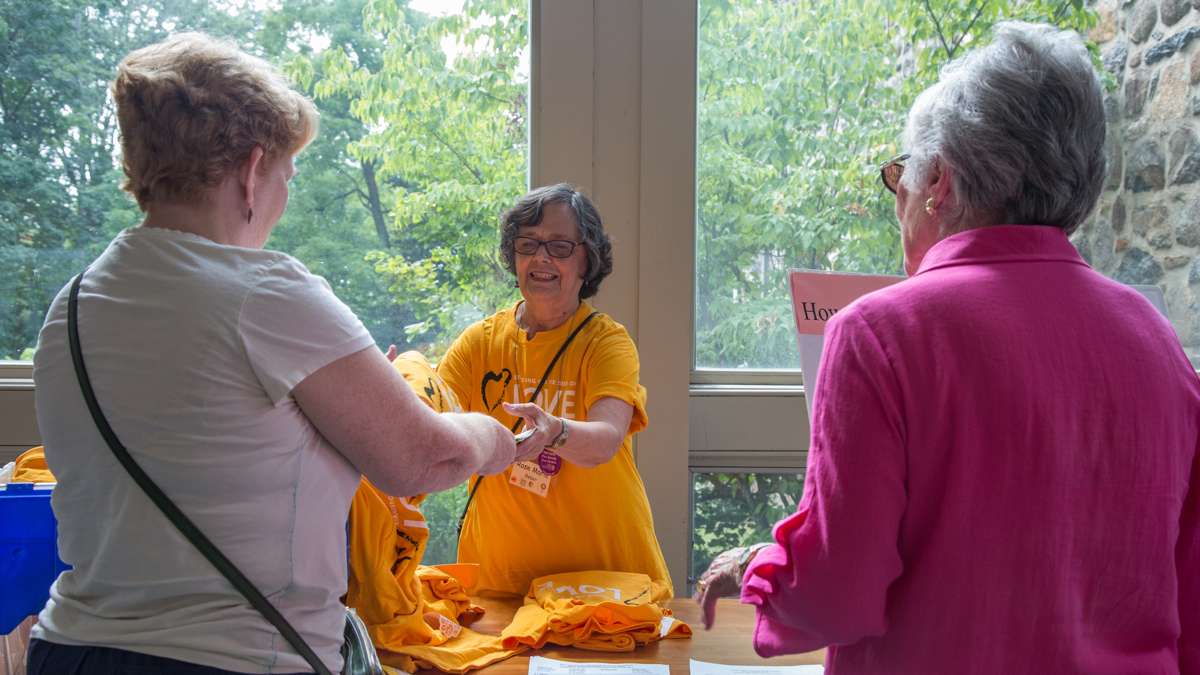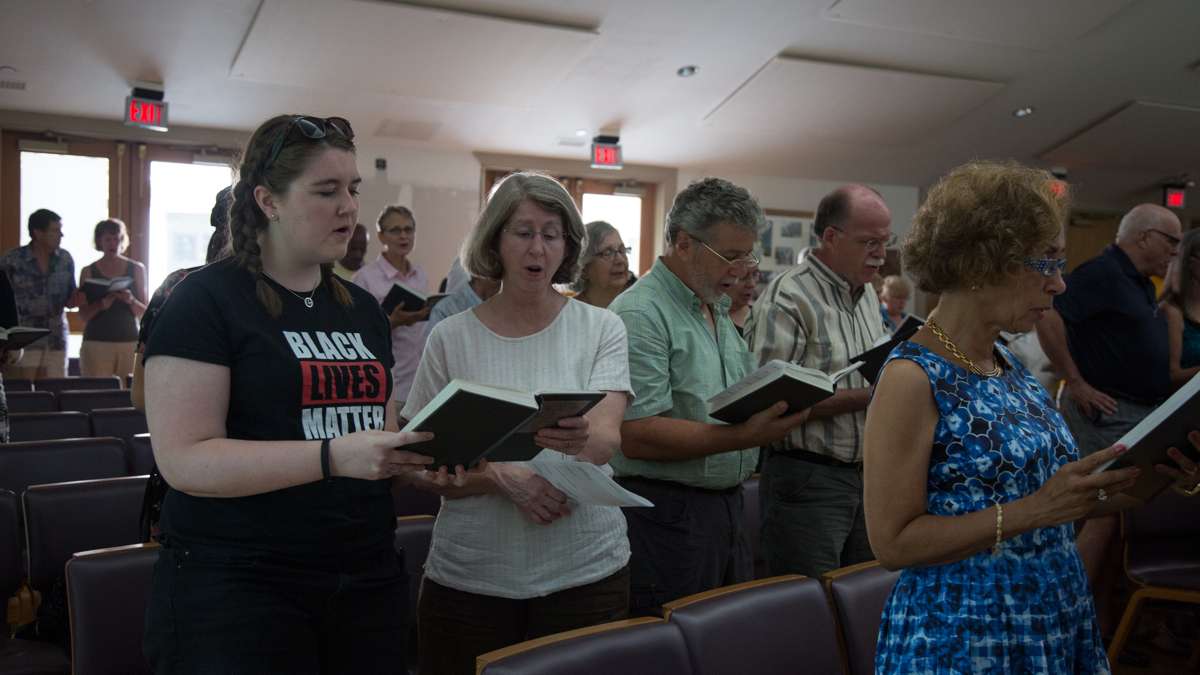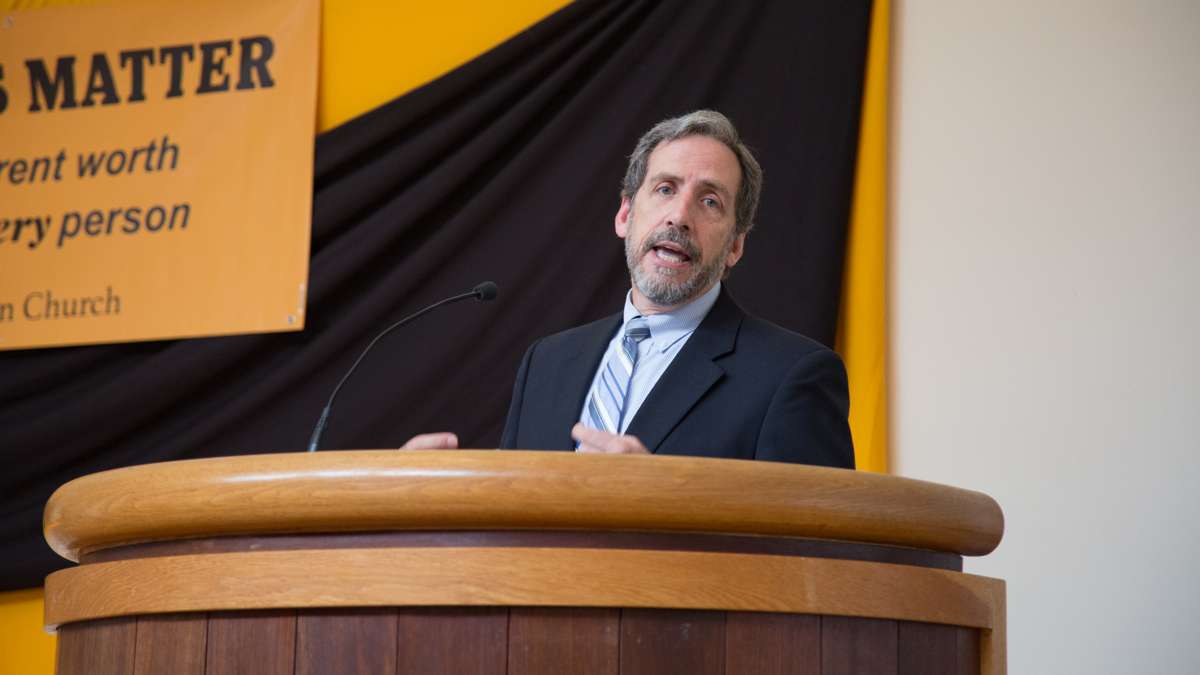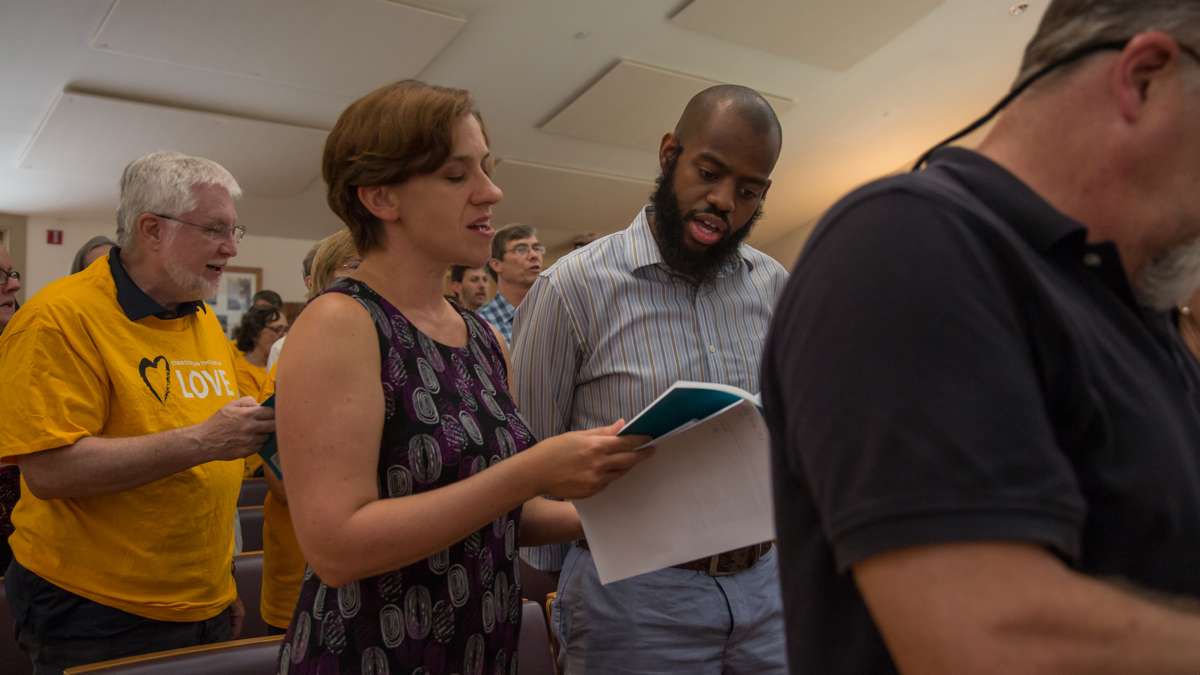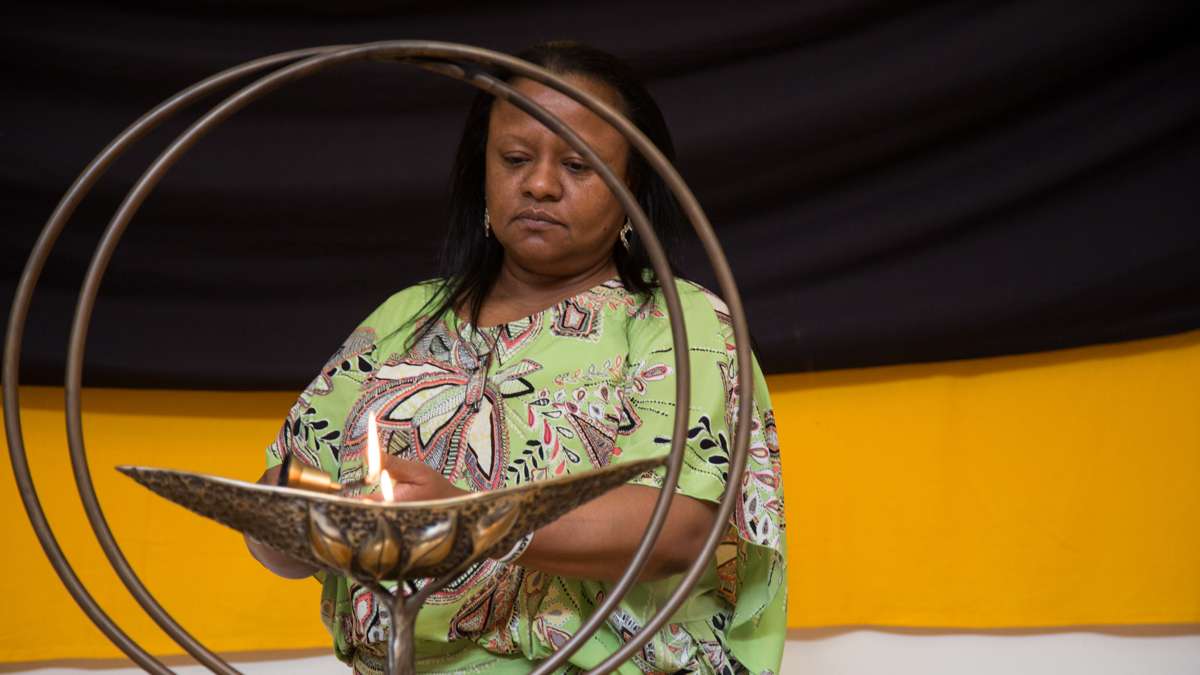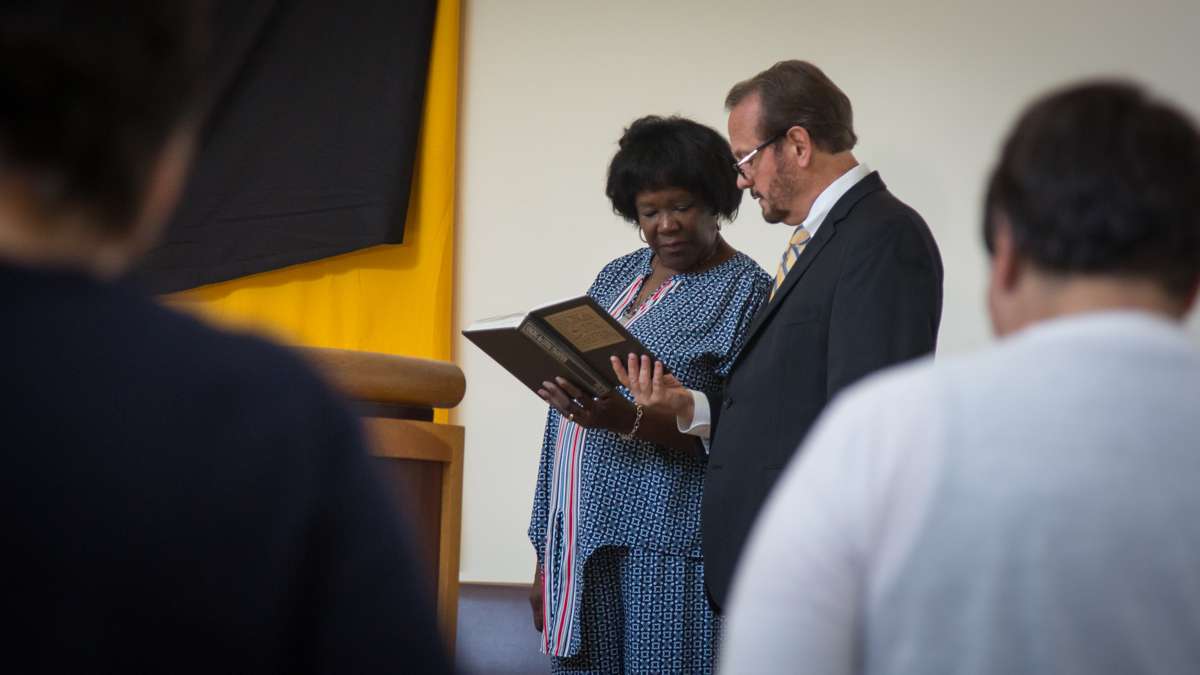Another Main Line church hoists a Black Lives Matter banner
This weekend, the service at the Main Line Unitarian Church in Devon was upbeat. There were non-denominational hymns and more than one standing ovation, but the message was very serioius.
“Black men are seven times more likely that white men to be killed by police,” said Reverend Dr. Neal Jones. “We need to say, ‘Black lives matter’.”
Jones presided over the dedication of a banner, now hanging near the intersection of Maplewood Avenue and South Valley Forge Road in this Chester County town, proclaiming the church’s support for the social movement. An audience of 150 people, all but a handful white, marked the occasion.
The move came after a vote at the church’s annual meeting, during which 92 percent of those present voted to make the statement and after several church-wide discussions on race.
Over the past four years, Black Lives Matter has evolved from protests responding to the highly-publicized killings of young black men into a social movement “working for the validity of Black life,” according to the website.
Now, churches in wealthy, mostly white Philadelphia suburbs are responding to racism in their own communities by proclaiming their support for the movement — eliciting both threats and praise.
Banners: a target and a magnet
Last August, on the anniversary of the death of Mike Brown, the teenager shot by police in Ferguson, Missouri, Central Baptist Church in Wayne held a vigil.
Like Main Line Unitarian, Central has a history of supporting progressive social movements. One member brought a “Black Lives Matter” banner to the vigil, which the church displayed on its well-trafficked Lancaster Avenue front lawn.
“Nine o’clock the next day the calls started,” said Reverend Tom Beers. “By the end of that week, our Facebook page began to be bombarded with very ugly, scary, racist statements.”
The sign has been repeatedly vandalized, as have those hung by churches in Cherry Hill, New Jersey and Wilmington, Delaware. Church leaders say the banners are not intended to disrespect police.
Beers said while the banner has drawn fire, it has also acted like a magnet for new members.
“We’ve had more people visiting us for worship, becoming members of our church, because of that banner,” said Beers.
“We weren’t allowed there.”
Over the course of the hour and a half service at Main Line Unitarian on Saturday, guest speakers and ministers aligned their support of Black Lives Matter with the Civil Rights movement of the 1960s.
Lawyer and Anita Friday, who lives in Berwyn, walked the mostly white audience through a history lesson spanning 400 years of black life in America.
“Black people know the story,” she said. On the Main Line, “I don’t think people know. It’s very safe and one can live in their bubble and be secure.”
Police stops and racial taunts at school have plagued Friday’s teenage boys, and were chronicled in a Philadelphia Magazine article last year. In one instance, her son, who has a genius IQ, was placed in a remedial class; in another, both teens were biking to a friend’s house when a neighbor reported their presence to police.
Stories like these spurred Friday to do more outreach about local experiences of racism and its effects. After the article came out, she said she heard a whole range of responses from the community.
“My children were in schools that should have been reserved for white children because of affirmative action, my children deserved to be stopped because everybody knows about black on black crime,” she said. “Then, there were people who said this is my life too and thank you for putting light on it.”
Kevin Stroman, who grew up in a predominantly black section of Wayne, said he feels much of the racial exclusivity of the Main Line remains.
“I think the biggest thing that anyone can do is just acknowledge that there’s a problem,” he said. “In 2016, we’re still talking about this…I had people cross the street. There were certain places we couldn’t go to — swim clubs, movie theaters, golf clubs. We weren’t allowed there.”
Both the Wayne and Devon congregations are a part of a newly created interfaith group, the Main Line Interfaith Undoing Racism Movement, focused on promoting racial justice and police accountability in suburban Philadelphia.
WHYY is your source for fact-based, in-depth journalism and information. As a nonprofit organization, we rely on financial support from readers like you. Please give today.


